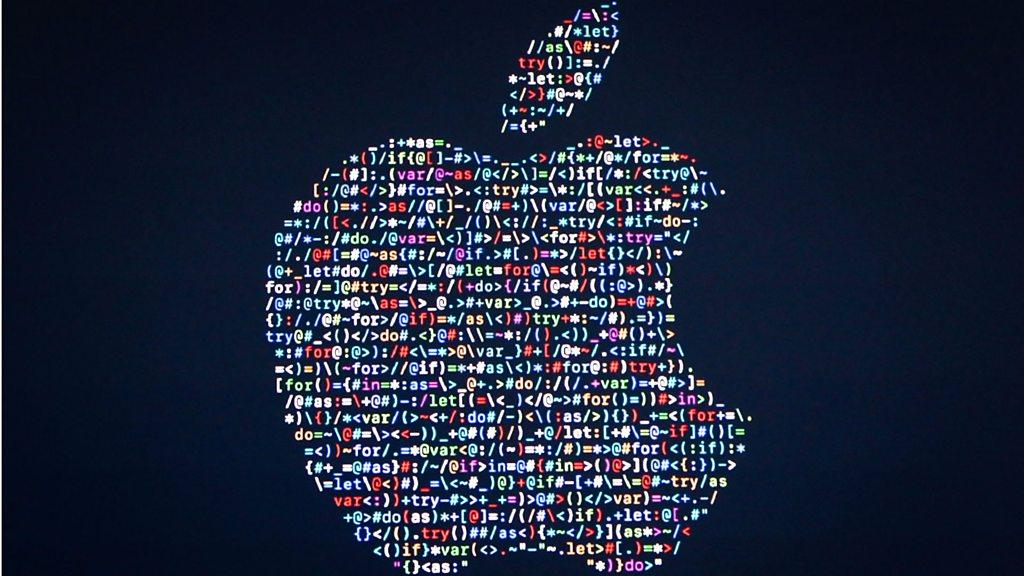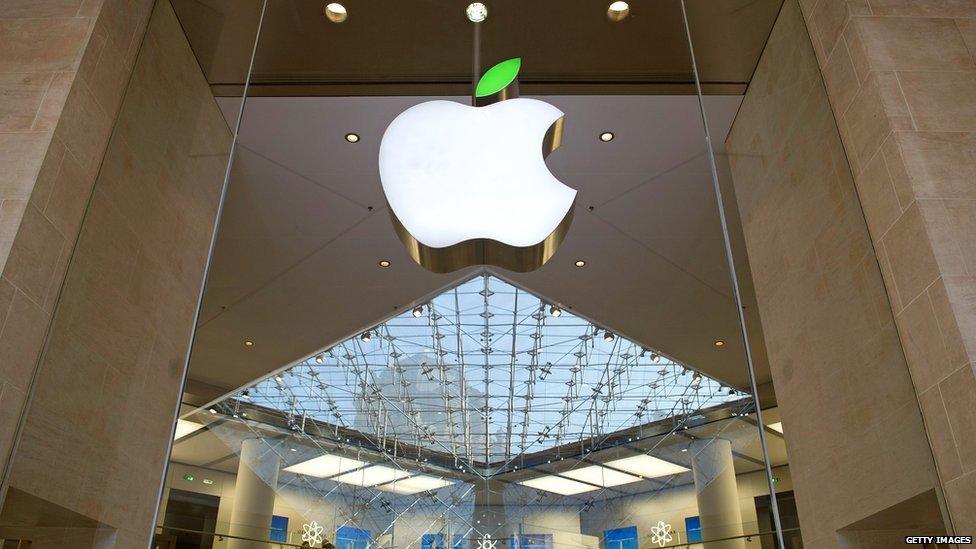Europe's 'unfair' Apple tax ruling sparks US anger
- Published

There has been widespread criticism in the US of the European Commission's ruling that Apple should pay up to €13bn (£11bn) in back taxes.
The US Treasury said that such tax investigations were "unfair" and undermined the tax rules of individual states.
Charles Schumer, a senior Democrat senator, called the move a "cheap money grab".
The White House said the ruling could cost US taxpayers.
White House spokesman Josh Earnest argued that if Apple paid the back taxes, it might offset that amount against tax due in the United States, which would be unfair for American taxpayers.
Apple faces €13bn Irish tax bill
'Illegal state aid'
Earlier the European Commission said, external Ireland had enabled Apple to pay substantially less than other businesses, in effect paying a corporate tax rate of no more than 1%.
Ireland and Apple both said they disagreed with the record penalty and would appeal against it.
"Member states cannot give tax benefits to selected companies - this is illegal under EU state aid rules," said Competition Commissioner Margrethe Vestager.
The standard rate of Irish corporate tax is 12.5%. The Commissions's investigation concluded that Apple had effectively paid 1% tax on its European profits in 2003 and about 0.005% in 2014.
Ms Vestager said that the tax agreement reached between Ireland and Apple meant that the company's taxable profits "did not correspond to economic reality".
Ms Vestager said the Irish tax system "allowed profits to be attributed to a head office that only existed on paper."
'Grabbing revenue'
The US Treasury said: "We believe that retroactive tax assessments by the Commission are unfair, contrary to well-established legal principles, and call into question the tax rules of individual member states."
Last week the Treasury warned that the European Commission was in danger of becoming a "supranational tax authority".
Charles Schumer, one of the highest-ranking Democratic senators, said: "This is a cheap money grab by the European Commission, targeting US businesses and the US tax base. "
"By forcing their member states to retroactively impose taxes on US companies, the EU is unfairly undermining our ability to compete economically in Europe while grabbing tax revenues that should go toward investment here in the United States," he said.
'Profound' effect
Apple said the decision would be harmful for jobs.
"The European Commission has launched an effort to rewrite Apple's history in Europe, ignore Ireland's tax laws and upend the international tax system in the process," the company said., external
"The Commission's case is not about how much Apple pays in taxes, it's about which government collects the money. It will have a profound and harmful effect on investment and job creation in Europe.
"Apple follows the law and pays all of the taxes we owe wherever we operate. We will appeal and we are confident the decision will be overturned."
Nobel Prize winner Joseph Stiglitz says the EU is telling big corporations: "We can get you"
The Irish government held a similar view, with finance minister Michael Noonan saying: "I disagree profoundly with the Commission."
He added: "The decision leaves me with no choice but to seek cabinet approval to appeal. This is necessary to defend the integrity of our tax system; to provide tax certainty to business; and to challenge the encroachment of EU state aid rules into the sovereign member state competence of taxation."
However, the record tax bill should not be a problem for Apple, which made a net profit of $53bn in the 2015 financial year.
Apple is not the only company that has been targeted for securing favourable tax deals in the European Union.
Last year, the commission told the Netherlands to recover as much as €30m (£25.6m) from Starbucks, while Luxembourg was ordered to claw back a similar amount from Fiat.

Analysis: Dominic O'Connell, Today business presenter
The current focus is on the size of the bill, but there are even larger issues at stake, including one fundamental question - who really runs the world, governments or giant corporations?
At present, it is difficult to tell. Individual governments appear impotent in their attempts to apply their tax laws to multinationals like Apple. They have systems designed to deal with the movement and sale of physical goods, systems that are useless when companies derive their profits from the sale of services and the exploitation of intellectual property.
In Apple's case, 90% of its foreign profits are legally channelled to Ireland, and then to subsidiaries which have no tax residence.
At the same time, countries can scarcely afford not to co-operate when Apple comes calling; it has a stock market value of $600bn, and the attraction of the jobs it can create and the extra inward investment its favours can bring are too much for most politicians to resist.
The European Commission's attempt to bring Apple to heel is on the surface about tax, but in the end about the power of the multinational and the power of the state. There is more to come; Margrethe Vestager, the Danish commissioner who is leading the charge against Apple, is warming up to take on Google.
- Published30 August 2016
- Published30 August 2016

- Published30 August 2016
